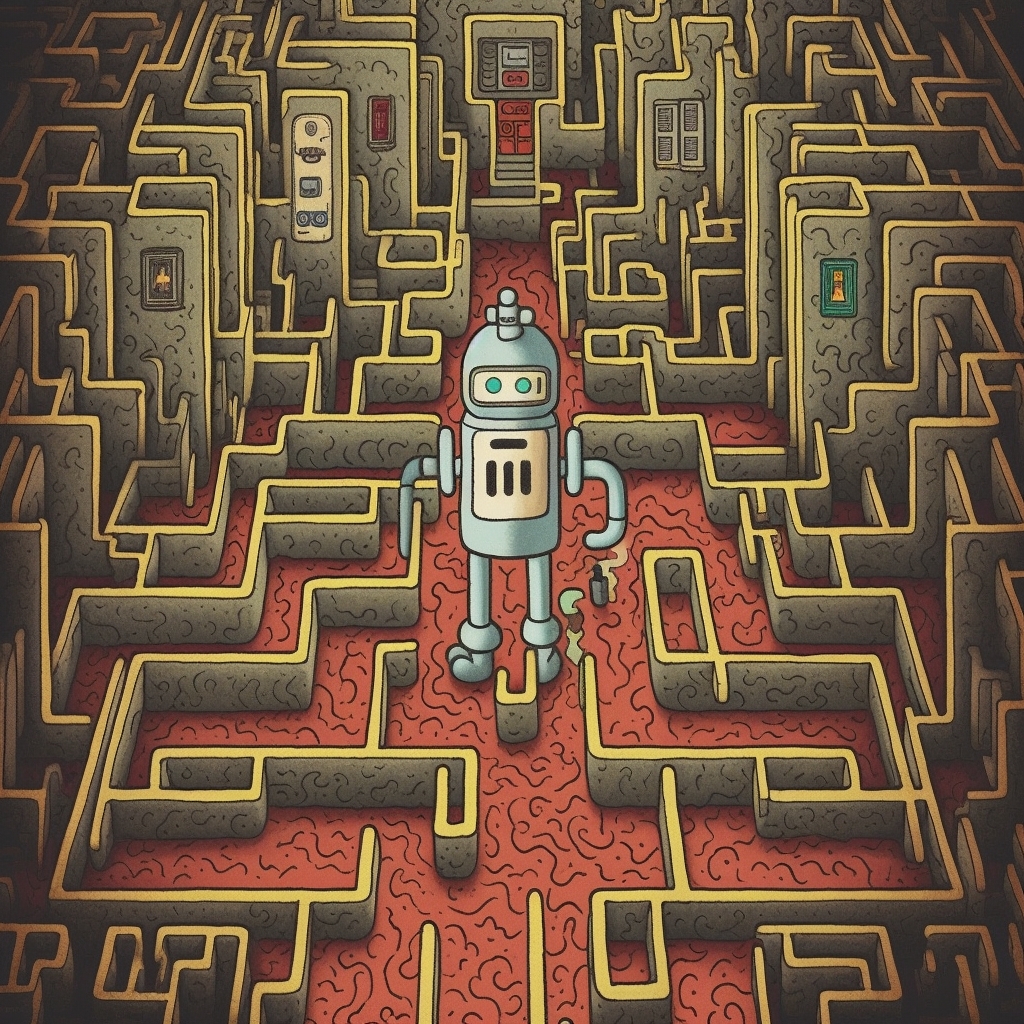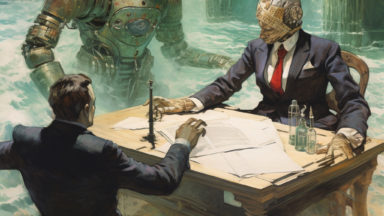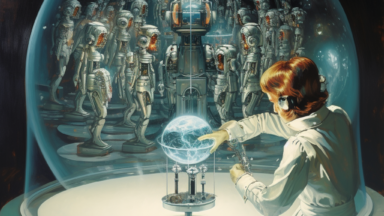
About a decade ago, Tesla CEO Elon Musk told reporters that the company’s new autopilot system is “probably better” than a human driver. He wrote, “In 2 years, [Tesla’s autopilot feature] summon should work anywhere connected by land & not blocked by borders, eg you’re in LA and the car is in NY.” A few days later, Tesla received its first autopilot death lawsuit. The self-driving revolution has been a bit more quiet since 2016.
Image designed in Midjourney AI
And while the U.S. Senate and even the A.I. leaders themselves stress out over tech sentience, the tech platforms are struggling to understand human common sense. The issue isn’t that technology is suddenly going to rule our lives (hint: it already is.). The real issue is us handing over power to technology that isn’t mature enough to differentiate what is most important to our customers, nevertheless to people writ large.
For example, content creators automating their messaging with AI tools may soon be in for a rude awakening. According to a new survey of more than 1,300 marketers, Hubspot found more than 1 out of 4 marketers (28 percent) used A.I. to write copy. We don’t know how much copy, but it was a more common A.I. use than creating marketing images, summarizing text, or language translation – and only overshadowed by generating ideas (33 percent). Do the math and we’re not only seeing an outsourcing of the marketing text that marketers use to, well, market, but also a parallel outsourcing of the idea generation itself. Why not have AI generate the idea and write the copy? It is just a small middle-manager step away.
Unfortunately, creating a closed loop system for A.I. is foolish, if not dangerous. In this case, a closed loop system means allowing a platform to “brainstorm” an idea and execute the idea without outside input. There may still be human intervention, but consider all the technologies today that already are automated: A chatbot that has direct customer interaction, an algorithm suggesting content for the user, or even ChatGPT itself.
By the time we realize there is an issue with the topic and execution of the A.I.-derived idea, then it could be too late to prevent any damage to our reputation or worse. We already are testing the proverbial Tesla autopilot with our companies.
One LinkedIn search for “ChatGPT Prompt Engineer” shows that the other end – that is, assuming that A.I. will always be dependent on us – is just as complicated. Becoming really good at asking the right question or statement into a popular tech platform to get a desired result is a fantastic skill, but not one that creates much job security. As one A.I. expert put it, technologists often believe without irony that the new, amazing paradigm will be the proverbial “one ring to rule them all” – until the next wave crashes in.
Generative A.I. will absolutely learn to prompt itself and, hopefully, those putting professional prompter on their resume will adapt before it becomes the equivalent of being a 1960’s phone switchboard operator.
The employees, leaders, and brands that thrive in this era will have to accept that we are in the messy middle. Yes, modern A.I. is an amazing collaborator for ideas and a potential virtual assistant that can help with your copy. It is also a clumsy black box struggling to separate fact from fiction and common sense from logic. It needs guidance, it needs humanity, and, most importantly, it needs time to grow up.
It is an early adolescent child: It may be the same height as you, but you probably should pause before throwing it the keys to your car.
Immedia understands that good content comes from the symbiotic relationship between A.I. and people. With the Contrend platform and Immedia Content, our proprietary analytic system will identify gaps in your specific content landscape, be it topic, style or format. genre, tone, style or length. We then enable and empower you to create a targeted and bespoke content strategy to open new marketing frontiers for you. We’re ready to talk anytime! Drop us an email at info@contrend.com.

